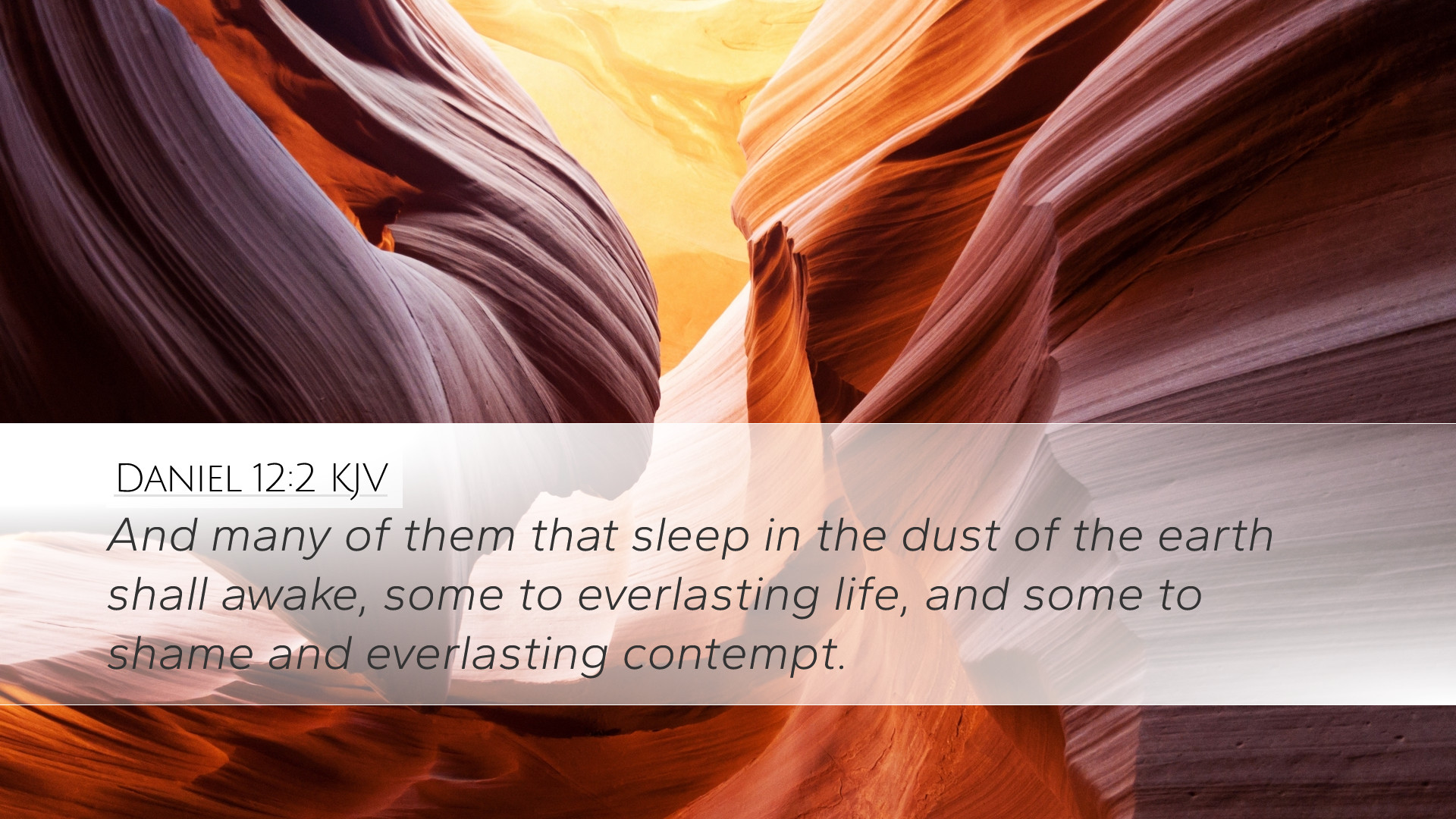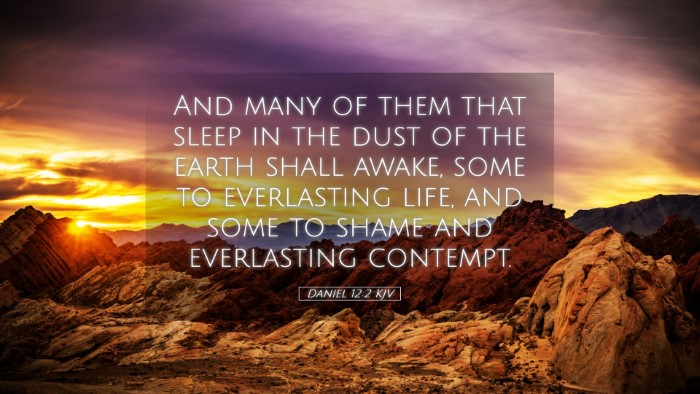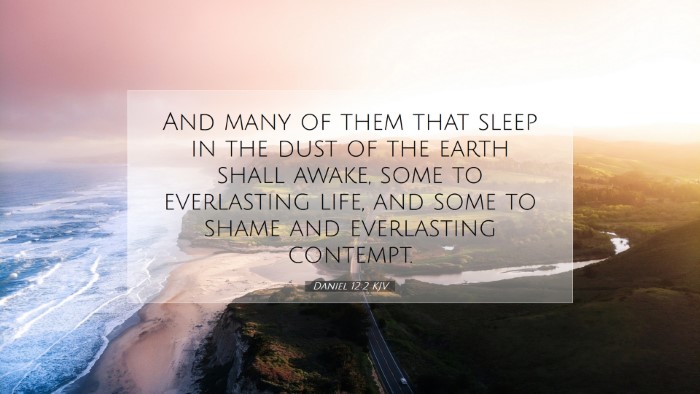Old Testament
Genesis Exodus Leviticus Numbers Deuteronomy Joshua Judges Ruth 1 Samuel 2 Samuel 1 Kings 2 Kings 1 Chronicles 2 Chronicles Ezra Nehemiah Esther Job Psalms Proverbs Ecclesiastes Song of Solomon Isaiah Jeremiah Lamentations Ezekiel Daniel Hosea Joel Amos Obadiah Jonah Micah Nahum Habakkuk Zephaniah Haggai Zechariah MalachiDaniel 12:2
Daniel 12:2 KJV
And many of them that sleep in the dust of the earth shall awake, some to everlasting life, and some to shame and everlasting contempt.
Daniel 12:2 Bible Commentary
Commentary on Daniel 12:2
Verse Context: Daniel 12:2 reads: "And many of those who sleep in the dust of the earth shall awake, some to everlasting life, and some to shame and everlasting contempt."
Introduction
This verse encapsulates a fundamental doctrine of the resurrection and the final judgment. It is a significant passage that speaks to the fate of humanity after death, highlighting both the hope of eternal life for the righteous and the grim reality of condemnation for the wicked.
General Overview
The book of Daniel primarily addresses exilic Israel's experiences and God’s ultimate sovereignty over all kingdoms. In this concluding chapter, the prophet is granted a vision that extends beyond immediate historical contexts, reaching into eschatological themes concerning resurrection and final judgment.
Verse Breakdown
- "Many of those who sleep in the dust of the earth shall awake":
This phrase refers to those who have died. The metaphor of "sleep" conveys both the state of death and the hope of awakening, highlighting the transient nature of death for believers.
- "Some to everlasting life":
This part of the verse points to the resurrection of the righteous, who will be rewarded with eternal life. Scholars note that this implies a restoration of the body, which will be transformed and glorified, ensuring believers' place in God’s eternal kingdom.
- "And some to shame and everlasting contempt":
This stark contrast emphasizes the fate that awaits the unrighteous. "Shame" denotes not only regret but also public disgrace, signifying the consequences of a life lived apart from God. The phrase "everlasting contempt" underscores the permanence of their condition, emphasizing the serious implications of one's mortal choices.
Theological Insights
According to Matthew Henry, this passage serves as a profound reminder of the inevitability of resurrection and judgment. He emphasizes that resurrection is not a mere restoration to life, but transforms the body to reflect eternal realities.
Albert Barnes reflects on the dual resurrection, asserting that all will eventually stand before God. He notes the moral implications of this truth, urging believers to live with a view towards eternity, knowing that our earthly choices have lasting consequences.
Adam Clarke points out the significance of this doctrine in relation to God’s justice. He interprets this verse also as an illustration of God’s mercy and justice — rewarding the faithful and avenging the wicked. Clarke believes this encapsulation of the resurrection message was particularly necessary for the oppressed Israelite community.
Applications for Modern Believers
This verse has several practical applications for Christians today:
- Hope in Resurrection:
Believers are called to find comfort and expectation in the promise of resurrection. This hope motivates Christian living, encouraging believers to persevere through trials with the assurance of eternal life with Christ.
- The Weight of Choices:
Understanding that life's decisions carry eternal significance, Christians are urged to make choices that align with God's will, prioritizing spiritual over material pursuits.
- Emphasis on Evangelism:
Recognizing the reality of eternal separation from God for the unrepentant should spur believers on to share the Gospel passionately, seeking to rescue others from condemnation.
Conclusion
Daniel 12:2 serves as a crucial theological foundation regarding life after death, resurrection, and judgment. Its dual message presents both hope for the faithful and a stark warning for the wicked. As believers navigate the complexities of life, this passage invites them to live in light of eternity, holding fast to the promise of everlasting life while being mindful of the solemn realities of eternal judgment.


